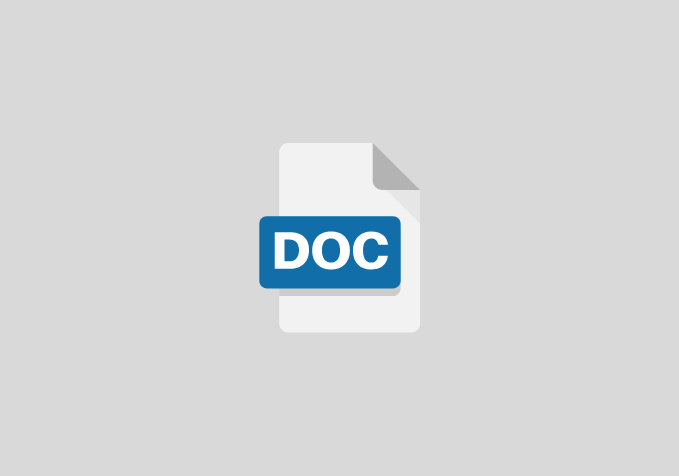The Use of Accounting Information in Assessing Control and Performance in an Organization (a Case Study of First Bank of Nigeria Owerri)
CHAPTER ONE
OBJECTIVES OF THE STUDY
The following are the objectives of this study:
- To examine the effect of accounting information system on financial transaction process.
- To examine the effect of accounting information system on the quality of financial reports.
- To determine whether accounting information system leads to effective internal control systems.
CHAPTER TWO
LITERATURE REVIEW
INTRODUCTION
This chapter gives an insight into various studies conducted by outstanding researchers, as well as explained terminologies with regards to accounting information system in an organization. The chapter also gives a resume of the history and present status of the problem delineated by a concise review of previous studies into closely related problems.
THEORETICAL FRAMEWORK
In terms of its theoretical framework, this study will draw on the Accounting theory and particularly the Decision usefulness theory. This theory attempts to describe accounting as a process of providing the relevant information to the relevant decision makers. Since the theory set out a formal procedure whereby an individual can make the best decision given his or her subjective probabilities, it is then relevant in this research where the Business Organizations managers are expected not only to monitor their business transactions but also to make the most accurate decisions that would bring profit to their enterprises. Clelland (1961) explains how entrepreneurs succeed in their business. He contends that successful business operators consider profit to be a measure of success and competency. They set personal but attainable goal for their business and are concern in how well they are doing. In this sense, they are conscious of every transactions accruing from their business and hence they are in a better position to control loss. The decision Usefulness Accounting theory emphasizes the recording of business transaction for the purpose of effective decision making in business.
CHAPTER THREE
RESEARCH METHODOLOGY
INTRODUCTION
This chapter describes the research design, population of the study as well as the sample size. The chapter equally describes the instrument of data collection as well as the technique use in presentation and analysis of data.
RESEARCH DESIGN
The survey research method adopted and used in collecting data from the study area. This design is appropriate for an academic research of these sorts which studies a small population and generalizes the findings on the entire population.
CHAPTER FOUR
DATA PRESENTATION, ANALYSIS AND INTERPRETATION
This chapter is devoted to the presentation, analysis and interpretation of the data gathered in the course of this study. The data are based on the number of copies of the questionnaire completed and returned by the respondents. The data are presented in tables and the analysis is done using the chi-square test.
CHAPTER FIVE
DISCUSSIONS, CONCLUSIONS AND RECOMMENDATIONS
Introduction
This chapter presents the demographic characteristic of the respondents, and was analysis using SPSS 16.V. Descriptive frequency analysis of demographic respondents was done, followed by analysis of accounting information system variables that includes (System quality, Information quality and system security) and organizational performance indicators in First Bank PLC.
The researcher presents used Descriptive statistic mean and Standard deviation to do the preliminary analysis and finally Pearson Linear Coefficient Correlation (PLCC). The findings of the study based on the objectives of the study. The researcher then makes data analysis and interpretation of the data.
Discussions
The study was guided by Three objectives, that is to examine whether there is a relationship between system quality and organizational performance in First Bank PLC, Owerri , to establish whether a relationship exists between information quality and organizational performance in the First Bank PLC, Owerri, to find out if there is a relationship between system security and organizational performance in the First Bank PLC, Owerri and to evaluate effect of accounting information system on organizational performance in the First Bank PLC, Owerri. The findings are as below.).
Conclusion.
The conclusions of the study were based on the findings of the study. Based on the findings of the study, the researcher made the following conclusions.
There is a positive significant relationship between system quality and organizational performance. This implies that as system quality is improving, also the organizational performance is improving. This also means that the analogy that there is no significant relationship between system quality and organizational performance is rejected.
Similarly, based on the findings of the study, the researcher also concluded that there is insignificant positive relationship between information quality and organizational performance. This implies that the relationship exists and is positive but is not big enough. This meant the hypothesis that there is no significant relationship between information quality and organizational performance is accepted.
Recommendations
Based on the findings, the researcher made the following recommendations.
- There is a need to investigate other factors that affect organizational performance other than accounting information system. This is because, accounting information system only accounts for almost 22% of the levels of organizational performance.
- Also, accounting information system, have been found to be accurate, reliable but the greatest threat which is manageable that’s skilled personnel requirement where comprehensive training for workers before any one is permitted to use the system because quality of data depends on garbage in garbage out Xu (2003).
REFERENCES
- David F.S. (1991) Basic Financial Management, 4th Edition, London: Prentice Hall International Ltd.
- Enekwe . I.C. (2010) Basic Fundamental in Accounting. Volume One. Owerri: Provindence Publication Ltd.
- Haag S. (2005) Management Information System. New York: Mc Graw-Hill Publication Ltd.
- Ituwe C. E. (2005) Strategic Management Theory and Practice. Lagos: Printex Publication Ltd.
- Osuagwu D. C. (1998) Introduction to Management Accounting, Owerri; Immaculate Publication Ltd.


